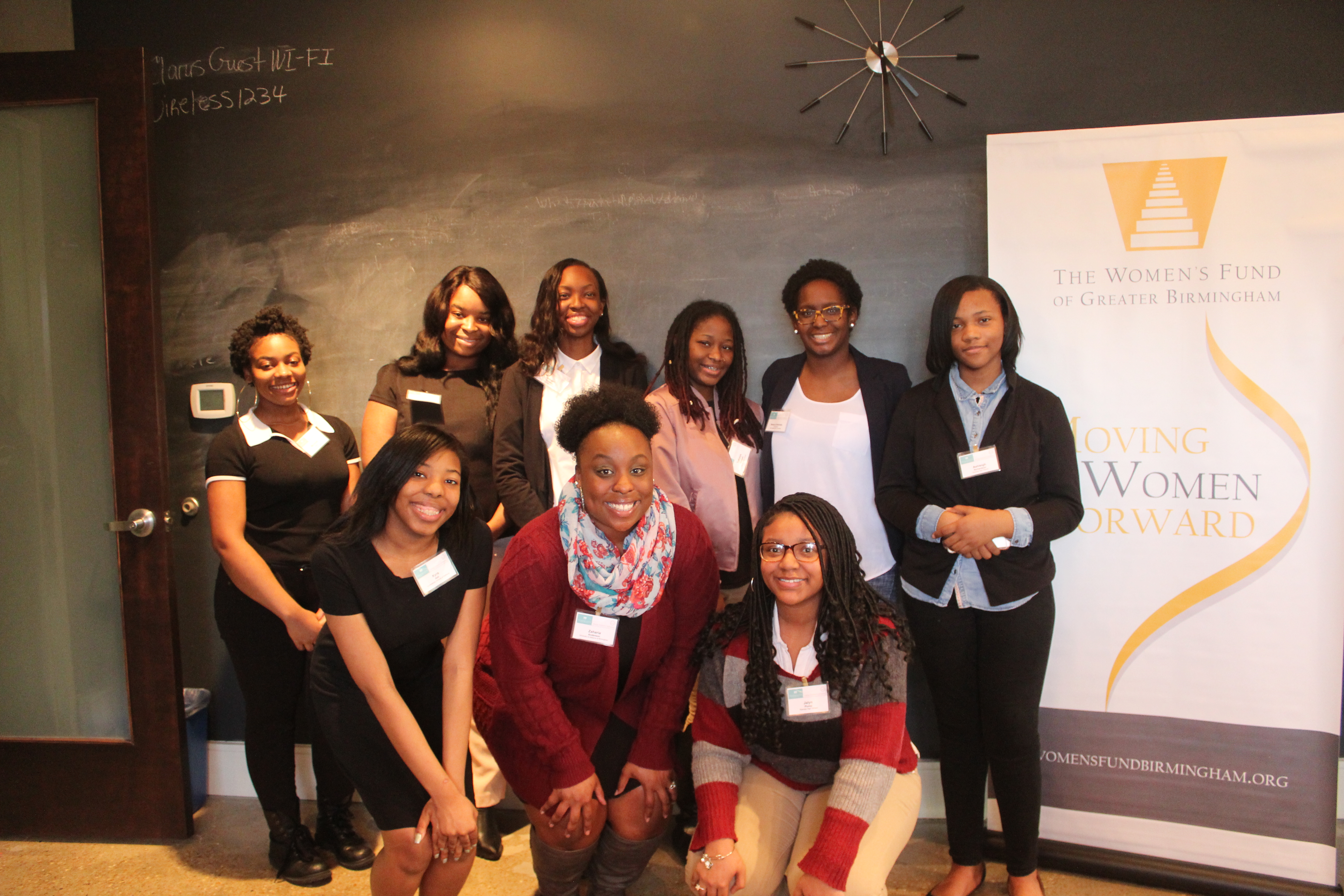
By Ariel Worthy
The Birmingham Times

Jalyn Plump, a freshman at Ramsay High School in Birmingham, wants to make a difference in her community by addressing gang violence and drug use in schools.
She’ll get that chance now with the launch of The Young Women’s Initiative of Greater Birmingham.
On Monday, The Women’s Fund of Greater Birmingham announced the Initiative aimed at improving equity and opportunities for and with young women ages 14-24 including those like Plump, who is 14.
“(This is an opportunity) to learn about other issues, and see what issues other people are facing,” she said. “And they can see what issues we face.”
For this initiative, The Women’s Fund is working alongside a national collaborative of eight women’s foundations to galvanize the power of young women—particularly young women of color and low income young women—to achieve gender and racial equity.
The participants come from schools such as Ramsay, A.H. Parker High School, Birmingham Southern College and Cornerstone Schools of Alabama.
Despite a recent decrease in overall poverty rates, racial and gender gaps still persist in Greater Birmingham. In Jefferson County, 29 percent of young women ages 15-19 experience poverty, but only 23 percent of young men do. The racial disparities are even starker: 36 percent of Latinos and 28 percent of African Americans experience poverty, compared to just 10 percent of whites.
“Based on the research and focus groups we conducted last year and our extensive work with single mothers over the past four years, we know there is a need to address the economic barriers common for low income women at an earlier age,” says Jeanne Jackson, President and CEO of The Women’s Fund. A striking finding from this research revealed that in Jefferson County, a young woman of color is more than twice as likely to be in poverty as her white male counterpart.
Responses from young women who participated in the focus groups convened by The Women’s Fund in spring 2017 echo these challenges while offering an optimistic outlook. One focus group participant said, “As a black female, I’m already stereotyped and looked at differently, so I want to prove people wrong.” Another said, “Education is the greatest need. We want to be successful. We want an education and college. We want to be something, but it is hard and expensive.”
Over the next eight months the girls selected for the program announced this week they will work on issues important to them and schools, and try to come up with solutions for them.
“In the applications the young women told us about some of the things they saw,” said Rebecca Harkless, Coordinator of the Young Women’s Advisory Council. “Some of the things they came up with was equal access to quality education, sexual harassment, comprehensive sex education and violence in the community.”
The group will meet the first and third Sunday of each month and in February begin to map out the issues, Harkless said.
Desi Hall, a participant from Birmingham Southern, was excited to hear about the program.
“So many young women of color just don’t have the opportunity to be great,” she said. “They have the talent, they have everything they need to be great, except the opportunity. That’s what fired me up and made me passionate, is being able to make that bridge.”




